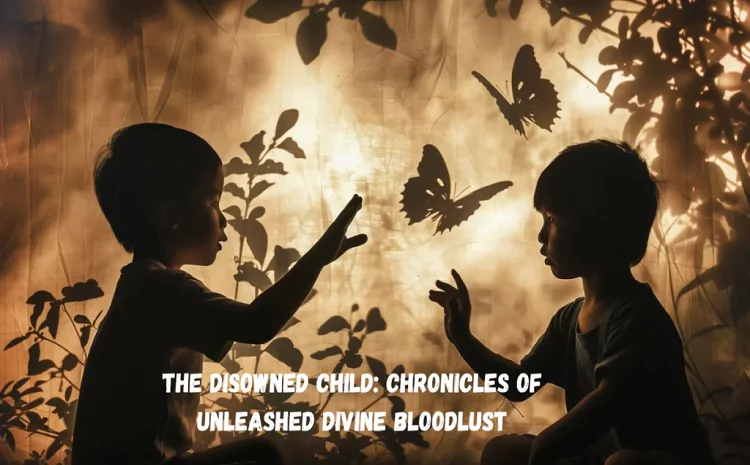“The Disowned Child: Chronicles of Unleashed Divine Bloodlust” is a captivating story that explores themes of power, betrayal, and redemption. Set in a world where divine forces clash, this tale follows a disowned child’s journey to reclaim his destiny. From a forgotten outcast to an unleashed force of divine bloodlust, this story keeps readers hooked with its vivid storytelling and intense emotional arcs.
Key Takeaways
- The disowned child is a central character who struggles to reclaim his place in the world.
- The chronicles of unleashed divine bloodlust reveal a journey of transformation, anger, and acceptance.
- Themes include betrayal, redemption, and the search for identity.
Plot Overview of “The Disowned Child: Chronicles of Unleashed Divine Bloodlust”
The narrative follows the disowned child, who is cast out from his family for possessing uncontrollable powers. Shunned by those he loved, he embarks on a journey to understand his divine bloodlust and its purpose. The chronicles depict his battles—both internal and external—as he comes to terms with his newfound strength and struggles to prevent becoming the very thing he despises.
Background of the Disowned Child
Born as the son of a mighty warrior, the disowned child was once cherished by his family and community. However, everything changed when his divine bloodlust manifested. Fearing his uncontrollable power, the family disowns him, branding him as a danger. This act of betrayal triggers a series of events that lead him down a path of vengeance and self-discovery.
| Aspect | Details |
|---|---|
| Character | The disowned child |
| Initial State | Cast out due to uncontrollable power |
| Key Challenge | Mastering his divine bloodlust |
| Main Theme | Redemption, identity, and inner conflict |
Key Themes Explored in the Chronicles
Betrayal and the Feeling of Being Disowned
One of the central themes is betrayal. The disowned child faces rejection from his family, which pushes him into solitude. His feelings of being unwanted and disowned resonate deeply, making readers empathize with his plight. This betrayal is the catalyst for his journey, as he seeks to understand why he was forsaken.
Unleashing Divine Bloodlust
The title, “Chronicles of Unleashed Divine Bloodlust,” points to the child’s struggle with his immense power. As his bloodlust is unleashed, he grapples with controlling it, learning to channel it constructively rather than letting it consume him.
Redemption and Acceptance
The story also delves into redemption. The disowned child wants to prove his worth and be accepted once more. His journey is about confronting his past and mastering his divine bloodlust to forge a new identity.
Character Analysis: The Disowned Child
The disowned child’s transformation is central to the chronicles. Here’s a closer look at his character development:
| Stage | Description |
|---|---|
| Outcast | Disowned and shunned by his family |
| Seeker | Searches for the meaning of his divine bloodlust |
| Warrior | Learns to control his power and fights against injustice |
| Redeemer | Seeks forgiveness and acceptance |
Internal Conflict and Growth
His inner turmoil is palpable throughout the story. As he embraces his power, he fears losing his humanity. This conflict adds depth, making the disowned child a relatable and compelling protagonist.
What is Divine Bloodlust?
Divine bloodlust refers to a heightened state of power fueled by intense emotion, particularly anger and vengeance. In the chronicles, the disowned child’s bloodlust is portrayed as both a gift and a curse.
Characteristics of Divine Bloodlust
- Uncontrollable Rage: Once triggered, it becomes difficult to control.
- Enhanced Abilities: Grants superhuman strength and speed.
- Emotional Toll: The wielder risks losing themselves to the bloodlust.
| Pros of Divine Bloodlust | Cons of Divine Bloodlust |
|---|---|
| Amplifies strength and combat skills | Can lead to self-destruction |
| Protects against external threats | Causes isolation and fear among peers |
| Instills fear in enemies | Hard to control, risking harm to loved ones |
Role of Family and Society in “The Disowned Child”
The disowned child’s journey is heavily influenced by his strained relationship with family and society. Being cast out leaves him with unresolved emotions that fuel his quest for understanding and control.
Disowned Children and Society’s Perception
The story also explores how disowned children are viewed by society. Rather than offering support, they are often shunned, leading to feelings of isolation. This reflects real-world issues where outcasts struggle to find acceptance.
Reconciliation and Acceptance
Despite his rejection, the disowned child seeks reconciliation, hoping to be embraced once more. His journey highlights the universal desire for acceptance and belonging.
Final Thoughts
The disowned child’s tale in the “Chronicles of Unleashed Divine Bloodlust” is a powerful narrative that blends themes of power, identity, and redemption. As he learns to harness his divine bloodlust, he comes to realize that true strength lies not in brute force, but in the courage to face one’s past and seek forgiveness.

